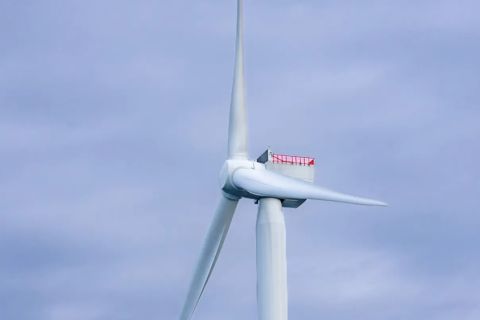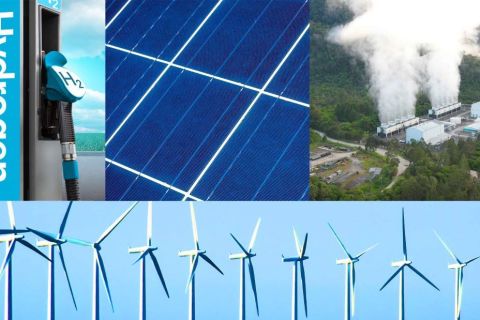Dealmaking is on the rise for businesses that gather, transport and dispose of water produced in hydrocarbon exploration and production activities. These businesses can trade at multiples similar to conventional midstream companies, implying that buyers expect these businesses to grow their earnings from long-term contracts having predictable, inflation-protected fees.
Given the evolving commercial and legal landscape for produced water businesses, a seller or buyer may face challenging issues during a transaction that conventional midstream businesses do not encounter, such as landowner issues, insurance for underground risks, and the status of material projects like saltwater disposal well (SWD) completions, among many others.
This article introduces key issues that a seller, in preparation for a sale, or a buyer, in connection with a due diligence process, should consider as potential value drivers.
Ongoing capex
An active produced-water business continuously constructs major capital projects for customers, including gathering lines, trunklines, storage tanks, and, in some cases, SWDs. Factors that could impact the cost of a pipeline project include right-of-way acquisition costs, pipeline materials and labor supply.
A SWD project can be affected by the permitting timeline, the depth of the well, the quality of the drilling crew, and underground events. In the sale of a produced-water business, particularly where the purchase and sale agreement provides for an interim “stand-still” period between signing and closing to address certain conditions precedent like regulatory approvals, buyers and sellers must agree upon the amount of capital necessary to deploy for those projects during that time period.
One solution for the parties to consider is creating a target capex amount for material projects during such period. As long as the target capex parameters are not exceeded during the interim period, the seller would be free to continue executing those projects during that period. The parties will have to determine the extent to which the purchase price credits the seller for value of those projects in process during the interim period.
Both buyers and sellers typically desire for an ownership change to not interrupt a capital project that straddles the closing, or else there could be miscommunication with third-party stakeholders like landowners or vendors. Accordingly, if there will be significant personnel changes in connection with the business, a buyer may incentivize the seller to complete the relevant project after the closing through a transition services arrangement.
Further, if the target business is entitled to monetary claims against insurance providers or contractors for a project that straddles the two ownership periods, then the parties might allocate the proceeds from such a claim based upon the relative periods of ownership.
Acreage dedications
Many produced-water service contracts are structured as acreage dedications— the oil and gas operator dedicates all of the produced water from certain acreage or wells to the midstream company. However, those dedications are typically subject to any pre-existing agreement of the operator affecting water rights.
For example, an operator might agree in an oil and gas lease or surface use agreement (SUA) to drill and use SWD wells that are located on the tract of land where the wells are drilled. These arrangements could impact the rights of the midstream business to gather, transport and dispose of the produced water away from the relevant tract.
Further, an SUA may regulate other activities relevant to a midstream company, including:
- Payment for rights-of-way on the surface estate to connect water pipelines to the operator’s facilities;
- Royalties to the landowner for use of the landowner’s SWD; and
- The sharing of profit from any oil skimmed from produced water.
In Texas, overall, landowners have more legal rights in relation to produced water activities than a midstream company typically encounters, in part because produced water is technically the property of the surface estate owner under state law and is frequently governed by an SUA between the operator and landowner.
Recycling rights
New technology is emerging that recycles produced water by extracting solids, metals, salt and other elements so that the water can be reused for drilling or other purposes and the relevant extracted components, such as salt, can be resold. Midstream businesses that have clear legal rights to recycle produced water are well-positioned to capitalize on the new technology.
The Texas Legislature recently passed a law to protect a downstream purchaser of produced water—as long as the produced water is sold for a “subsequent beneficial use,” then the water’s buyer takes legal title. Although the law did not define “beneficial use,” such use is generally considered to include recycling of the water (rather than simply disposing of it in a SWD).
In many situations, the operator compensates the landowner for freshwater extracted by the operator from the surface estate, and so landowners may not view recycling as economically accretive. Accordingly, landowners may restrict water recycling activities in an SUA. Because the surface estate owner has, unless separately conveyed, legal title to water produced from the surface estate under the laws of Texas, the industry will continue to pay attention to how landowners and operators address the allocation of economic value in relation to water recycling activities.
Insurance
Representation and warranty insurance has increased in popularity for midstream oil and gas transactions. The insurance product allows a buyer to rely upon an insurance policy, rather than the seller’s balance sheet or escrowed proceeds, for substantially all of its recovery from breaches of the seller’s representations and warranties. It is important for a buyer that anticipates using such a policy to budget time during its process for the preparation of a legal due diligence report that insurance underwriters will review and potentially have questions regarding.
A representation and warranty insurance policy may or may not cover breaches of environmental representations and warranties, which are often addressed through separate insurance policies. In particular, there are special insurance policies that an operator of SWDs typically obtains, which are more in the nature of insurance policies that upstream oil and gas companies obtain.
These policies cover events like underground leaks of produced water or accidents involving disposal trucks at or near the SWD. Early in the deal process, a seller or buyer should consult with an insurance adviser about the scope of coverage, the policy limits and the existence of any claims.
The value chain
Unlike with certain midstream businesses focused on one particular service—like transportation, gathering or storage—many produced-water businesses have assets and operate across the value chain. They may even have different means to provide a service; many companies have trucks available to transport produced water in lieu of a pipeline, particularly at the early stages of a well’s lifecycle when more water is commonly produced.
From a transactional perspective, the seller and buyer should clearly define which individuals and assets function in the different operational areas of the business. If the transaction is a business carve-out, such as a sale by an operator of its produced water assets, the parties will need to agree upon personnel and assets that are subject to the transaction, which may result in some gaps that the buyer has to fill through its own personnel or new hires.
This article introduces some key considerations for sellers and buyers prior to a strategic transaction involving a produced water business. Overall, the parties will need to bear in mind that a transaction involving a produced-water business has similarities to other midstream M&A transactions, but because of the unique nature of landowner relationships, operator relationships, insurance policies and environmental risks, and multi-faceted business operations (including SWD management), there are important distinguishing characteristics.
_________________________________________________________________________________________________________________________________
Archie Fallon is a partner with Willkie Farr & Gallagher LLP in Houston.
Recommended Reading
Equinor, Ørsted/Eversource Land New York Offshore Wind Awards
2024-02-29 - RWE Renewables and National Grid’s Community Offshore Wind 2 project was waitlisted and may be considered for award and contract negotiations later, NYSERDA says.
Ørsted Names New CFO, COO Following 2023 Setbacks
2024-02-27 - Ørsted appointed Trond Westlie as CFO and executive board member and Patrick Harnett as COO following company difficulties in 2023, including a $4 billion impairment charge in third-quarter 2023.
US Gives Final Green Light to Sunrise Wind Offshore Project
2024-03-26 - The approval by the Bureau of Ocean Energy Management solidified Ørsted and Eversource’s commitment to the project with both taking final investment decisions.
Eversource to Sell Sunrise Wind Stake to Ørsted
2024-04-19 - Eversource Energy said it will provide service to Ørsted and remain contracted to lead the onshore construction of Sunrise following the closing of the transaction.
Energy Transition in Motion (Week of March 28, 2024)
2024-03-31 - Here is a look at some of this week’s renewable energy news, including proposals submitted to develop about 6.8 gigawatts of wind projects offshore Connecticut, Massachusetts and Rhode Island.





